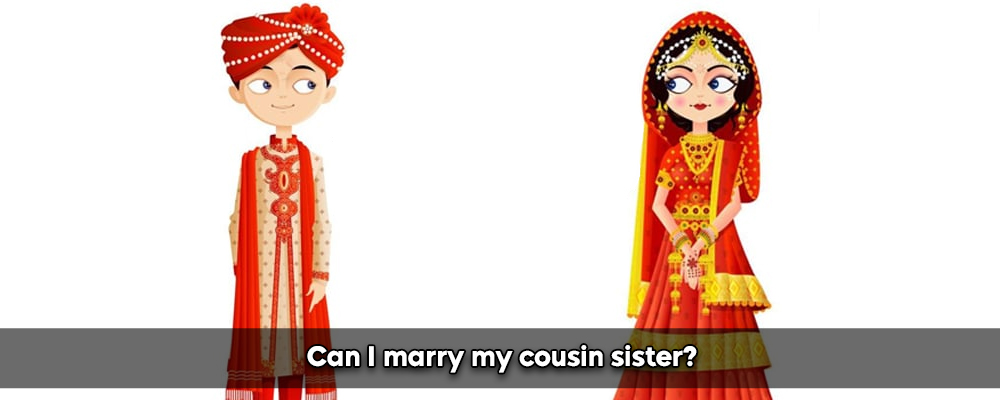It evolved into a contract that must meet legal standards. Marriage, as defined by law, is a contract between a man and a woman to support each other in a shared household. Article 21 of the Indian Constitution recognizes the right to marry, as does Article 16 of the Universal Declaration of Human Rights, 1948.
The definition of marriage varies from person to person; some will say union of lives, others will say tie of love, others will say life imprisonment, and others will say something else. Matrimonial rules in India were founded on English matrimonial law when Warren Hastings created them in 1772.
Need A Legal Advice
The internet is not a lawyer and neither are you. Talk to a real lawyer about your legal issue

Hindu Marriage Act, 1955
According to Section 5 of the Hindu Marriage Act of 1955, which governs Hindu marriages, marriage with your first cousin falls under the category of banned relationships and hence is void in the eyes of the law. A void marriage is not legally binding, and the parties involved do not have matrimonial rights or duties to one another. Thus, under Indian law, Hindu relatives cannot marry. Furthermore, under Section 18 of the Hindu Marriage Act of 1955, such marriages are punished by up to one month in prison and a fine of up to one thousand rupees.
Muslim Law
Cousin weddings, particularly those between first cousins, are permissible under Islamic law and were practiced by Muhammad. Family law in India considers religious and cultural norms; for Muslims, who are regulated by uncodified personal law, marrying a first cousin is acceptable and legal; yet. In India, cousin marriage occurs at a rate of 9.87%, and attitudes towards cousin marriage vary greatly by area and cultural background. Cousin marriage is accepted and permissible under uncodified personal law among Muslims in India. The Special Marriage Act of 1954 also covers cousin marriage, categorizing all first cousins, including paternal and maternal, as forbidden marital relationships, regardless of religion.
Personal, religious, and cultural rules all have an impact on the occurrence of cousin marriage in India, with Hindus and Muslims facing various regulations. Attitudes towards cousin marriage differ significantly by area and culture.
For example, cousin marriage is prohibited and considered incest among Hindus in North India. Marrying inside one’s community or having two siblings marry partners from the same village may be considered inappropriate. In South India, however, Hindu cross-cousins are frequently married, with matrilateral cross-cousin marriages (mother’s brother’s daughter) being especially popular. The southern kinship concept is prevalent in Andhra Pradesh, Telangana, Karnataka, Kerala, and Tamil Nadu.
Marriage to a first cousin is both acceptable and permissible under Indian Muslim law. However, the legal position of cousin marriage for Hindus is more stringent, with the Hindu Marriage Act and the Special Marriage Act limiting such weddings.
Health risks associated with cousin marriage
Cousin marriage is widely practiced in various cultures, notably among Muslims in India. However, cousin marriage carries some health hazards. A study published in The Lancet in July 2013 found that marrying a cousin considerably increases the chance of congenital abnormalities (birth problems).
The study discovered that cousin marriage increases the likelihood of infants being born with birth defects such as heart or nervous system disorders, which can result in infant mortality. The incidence of birth abnormalities from cousin marriage rises from 3% to 6%, while the overall risk remains low. The majority of kids born to blood relations are healthy.
Cousin marriage may raise the risk of genetic diseases and pediatric illnesses. Children born in cousin marriages suffer an increased chance of genetic problems, such as autosomal recessive diseases, which are caused by inheriting two copies of a gene, each containing a mutation.
The danger of recessive disorders also differs between groups depending on the distribution, making some conditions more common than others, and the history of marriages to blood relations within them. The risk of mortality or major disability in youngsters could be as high as 10%.
Lead India offers a range of legal services, including free legal advice and online information. You can talk to a lawyer and ask a legal question on various matters, including divorce, through our platform.





 Talk to a Lawyer
Talk to a Lawyer